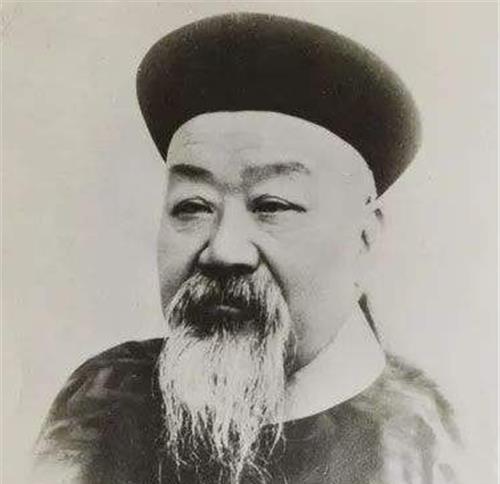The Qing Dynasty was the last dynasty of the feudal dynasty, in the first year of the Republic of China (1912), the Xuantong Emperor Puyi announced his abdication under the will of Empress Longyu, and the Qing Dynasty completely withdrew from the stage of history, but an old man of more than half a hundred years old walked in the desert Gobi in northern Xinjiang in the cold winter.

He went north to Kulun, asked for assistance, and supported daqing, and his opponent was Sun Wen, who had achieved fame, and Sun Wen left an inscription when watching the tide of the Qiantang River, "The tide of the world is mighty, and if it goes along with it, it will prosper, and if it goes against it, it will die", and this old man is against the water, he is the last Minister of the Qing Dynasty, Doroth Shengyun.
Shengyun was born in 1858, is the Eight Banners of Mongolia with yellow flags, raised in mid-1882, and later became the governor of Shanxi Shaanxi and Gansu, among the Qing Dynasty ministers, Shengyun did not know how much is the way of officials, Gengzi Xi hunted, he was driving in Shaanxi, he saw the eunuchs harassing along the way, he also ignored the scene at that time, he drank loudly.
He was not afraid of power many times, impeached the magnates, and not many ministers were willing to make friends with him above the court. On the seventieth birthday of Empress Dowager Cixi, all the civil and military officials generously donated money and offered all kinds of rare treasures, and Shengyun not only did not give gifts, but also wrote to Cixi to ask Cixi to stop this kind of birthday gift of laboring the people and hurting the wealth.
In the first year of the Republic of China, he opposed the abdication of the Qing Emperor, because the behavior was too fierce and was dismissed, after the outbreak of the Wuchang Uprising, he led the old troops in the name of "King Qin" to attack Xi'an and meet Puyi, he attacked more than ten cities in a row, and when he saw that he was going to capture all of Shaanxi, Puyi issued an abdication edict.
However, Shengyun still insisted on overthrowing the revolution and continuing to fight, in the face of the revolutionary wave, the Gan army also knew that the Qing army was gone, the subordinates refused to continue fighting, the new army also came to persuade surrender, looking at this ruined city, Shengyun cried bitterly, while scolding, "I have nothing to do, only to die to repay the holy grace."
His subordinates were infected by him and persuaded him, and finally Shengyun did not commit suicide, and after the defeat of the "King of Qin" in 1913, he went to Japan to seek strength to support the restoration, and joined the Japanese Sectarian Socialist Party, and in 1914, after the outbreak of World War I, the Japanese army launched an attack on the German-occupied Qingdao.
Shengyun also came to Qingdao, and at the same time contacted Zhang Xun for restoration, with the support of the Japanese, Shengyun also secretly trained a troop, including many Japanese ronin, in Qingdao he also met Puyi, he negotiated with Puyi about restoration, but Puyi refused him.
Although Puyi refused, but Shengyun still went north for the restoration, upside down, in June 1917, Zhang Xun and Shengyun planned the restoration finally began, but after Zhang Xun entered Beijing, there was no intention of restoration, the restoration eventually led to failure, Shengyun heard about it, and became seriously ill.
After Zhang Xun's failure, he dragged his body infected with a vicious disease and continued to contact the Japanese, but in the end his wish was disappointed, in 1931, Shengyun died of illness in front of the desk in his apartment in Tianjin, and before his death, he also wrote a hand of five musts: the old minister is still here, and the young lord is like this. If you shoot at Lin Yan, or Feng Su Wushu.
It seems that he was iron-hearted and wanted to restore the Qing Dynasty, and after Shengyun's death, Puyi gave him a gift: Wen Zhong, the "Shinto Monument" of the Chinese painting master Pu Ru, compared the restoration of Shengyun to "Wu Hou exhausted, the Heavenly Dao can be known; Shen Xu was empty, and the subjects were exhausted".